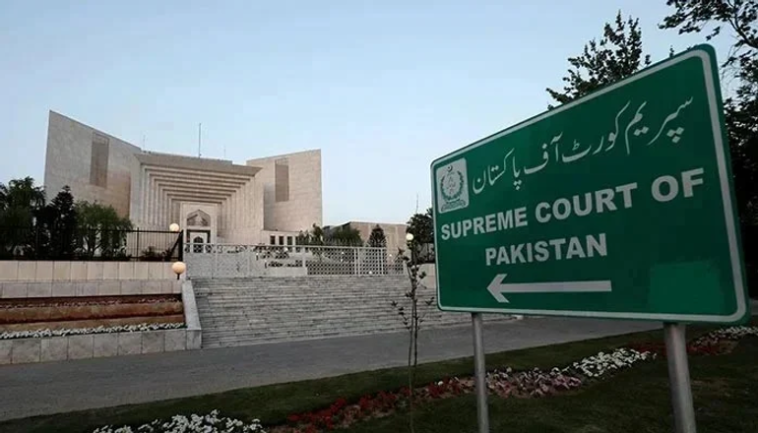The Supreme Court of Pakistan has resumed its hearing on the delay in the Punjab and Khyber Pakhtunkhwa assembly elections. The case is being heard by a nine-member larger bench led by the Chief Justice of Pakistan, Justice Umar Ata Bandial. The bench includes Justice Ijazul Ahsan, Justice Munib Akhtar, Justice Mazahar Ali Naqvi, Justice Muhammad Ali Mazhar, Justice Yahya Khan Afridi, Justice Mansoor Ali Shah, Justice Athar Minallah, and Justice Jamal Khan Mandokhail.
The Pakistan Democratic Movement (PDM) asked Justices Ijazul Ahsan and Mazahar Ali Akbar Naqvi to step down from their positions as judges before the hearing even started. Farooq H. Naek, a PDM lawyer, made the request.
The federal government, attorney general, election commission, advocates general of the four provinces, and the advocate general of the Islamabad Capital Territory had all received notices from the top court on Thursday. After the Pakistan Tehreek-e-Insaf (PTI) dissolved the legislative assemblies in the two provinces on the orders of party leader Imran Khan in mid-January, the case was taken up by Chief Justice Umar Ata Bandial after he took suo motu notice of the delay in the elections in those two provinces.
Some judges voiced their concerns about the dissolution of the assemblies and the related constitutional issues during the hearing. The provincial assemblies of Punjab and KP were dissolved in accordance with the Constitution, Justice Athar Minallah noted, but it is still unclear whether this was done in a way that was constitutional given that the people choose their representatives to the parliament for terms of five years. Justice Syed Mansoor Ali Shah also questioned whether dissolving assemblies in violation of the Constitution and how they could be dissolved on a person’s orders.
The Pakistan Bar Council, the Supreme Court Bar Association, the governments of Punjab and Khyber Pakhtunkhwa through their respective chief secretaries, and members of the Pakistan Democratic Movement (PDM) have all received notices from the court for today’s hearing. The president and the governors of Punjab and Khyber Pakhtunkhwa were not served with a notice by the court because they are guaranteed protection under Article 248 of the Constitution.
In its ruling, the court noted that it had received two petitions, one from the Islamabad High Court Bar Association and the other from the speakers of Punjab and Khyber Pakhtunkhwa’s provincial assemblies. The petitions argued that elections are required by Article 224 of the Constitution within 90 days of the dissolution of the assemblies and asked the court to order the relevant constitutional authorities to hold elections in the two provinces.
Although six weeks have passed since the dissolution of the provincial assemblies, the issue of scheduling elections to both assemblies remains unresolved. The court noted that the order had been contested by both the Punjab governor and the election commission through an intra-court appeal, that the LHC was to hear the case on February 21, 2023, and that notices would be sent out on February 27 after the case had been heard.
The Peshawar High Court proceedings were set to begin on February 28, 2023, the same day the ECP submitted its report, the court noted in its order.


